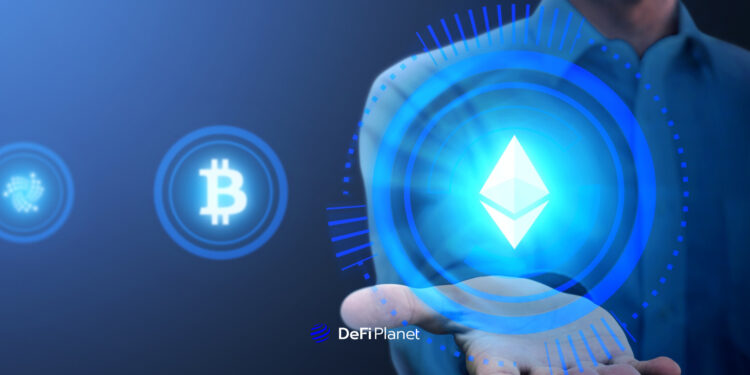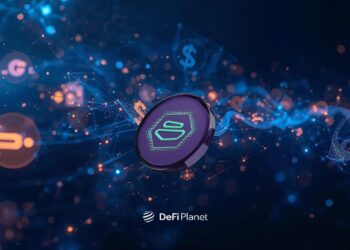Last updated on June 4th, 2025 at 10:56 am
There are two giants in the blockchain world: Bitcoin, Ethereum, and others. Bitcoin is the pioneering cryptocurrency, the one that made it all happen, and Ethereum is the platform that redefined blockchain and opened up a new other world because it enabled programmability. Two starkly different possibilities with one technology.
However, in recent times, it appears that both possibilities are starting to converge, with Bitcoin making the most shift. Ethereum’s success has led to calls for Bitcoin to expand its functionality. So, we are starting to make many moves to make Bitcoin more like Ethereum. Innovations like Bitcoin Ordinals, BRC-20 tokens, and Runes are laudable efforts, but they leave us wondering whether they are really necessary.
As Bitcoin experiments with these Ethereum-inspired functionalities, there is a strong debate about whether this push enhances Bitcoin’s relevance or undermines its original purpose.
Should Bitcoin evolve to mimic Ethereum’s functionality and embrace smart contracts, NFTs, and dApps? Or should it remain steadfast in its original vision as a decentralized peer-to-peer digital currency?
This question cuts to the heart of what Bitcoin represents. In this article, we explore whether these efforts enhance or detract from Bitcoin’s identity, particularly the balance between innovation and preservation.
Bitcoin’s Original Vision
When Satoshi Nakamoto introduced Bitcoin in 2008, the vision was clear: a decentralized, trustless, and censorship-resistant form of digital money. Its minimalistic design focuses on security, reliability, and resilience, facilitated by a limited scripting language that reduces vulnerabilities. In essence, it was built as an alternative to the complexities of the existing financial system, not as a do-it-all blockchain.
As Nakamoto explained in a forum post, “[…] I wanted to design it to support every possible transaction type I could think of.”
Over time, Bitcoin has become synonymous with:
- A Decentralized Digital Currency: Bitcoin’s architecture resists central control and censorship, making it a truly global asset.
- A Store of Value: Dubbed “digital gold,” Bitcoin is increasingly seen as a hedge against inflation and traditional financial instability.
- A Secure and Resilient Network: Its proof-of-work consensus mechanism and finite supply create predictability, bolstering its appeal as a long-term asset.
Bitcoin’s simplicity is its strength. Any attempt to expand its functionality must be carefully weighed against the risk of compromising its foundational purpose.
The Risks of Over-Expansion
Bitcoin’s simplicity has always been one of its greatest assets. Its limited scripting language and UTXO model make it secure, predictable, and easy to audit. Introducing features like smart contracts, tokens, and NFTs risks overcomplicating its architecture and increasing the chances of security breaches, which could undermine its usability and reliability.
Ethereum’s programmability comes with well-documented risks, from reentrancy attacks to exploits in smart contracts. Its account-based model allows for flexibility but also introduces a broader attack surface. Bugs in smart contracts have repeatedly caused high-profile losses in Ethereum’s ecosystem. For Bitcoin, a system that prioritizes trust and stability, such vulnerabilities could erode confidence and damage its reputation.
Dilution of Purpose
Bitcoin was designed as a decentralized alternative to fiat currencies, not as a platform for dApps or NFTs. Efforts to expand its functionality risk blurring its identity and diluting its core purpose. If Bitcoin tries to compete directly with Ethereum, it may lose the features that distinguish it as a store of value and a peer-to-peer currency.
Bitcoin’s role as “digital gold” is one of its defining strengths. Transforming it into a jack-of-all-trades could weaken its value proposition as the most secure and decentralized blockchain.
The Case for Functional Expansion
Rather than chasing trends, Bitcoin’s development should focus on enhancing its utility as a peer-to-peer currency and store of value. Improvements to scalability, transaction speed, and user accessibility could strengthen Bitcoin’s position as a decentralized alternative to traditional financial systems.
Scalability and Transaction Speed
Bitcoin’s scalability challenges are well-documented. As the network grows, congestion and high transaction fees become significant barriers to adoption. Solutions like the Lightning Network address these issues by enabling fast, low-cost transactions while preserving Bitcoin’s decentralization.
The Lightning Network has already shown promise in improving Bitcoin’s utility for everyday transactions. Expanding its adoption could further solidify Bitcoin’s role as a medium of exchange without compromising its simplicity or security.
RELATED: Will the OP_CAT Upgrade Turbocharge Bitcoin’s Role in DeFi?
Economic Security
Bitcoin’s fixed supply and deflationary nature are key to its appeal as a store of value. However, its economic model relies on transaction fees to sustain miners in the long term, raising concerns about its security as block rewards diminish.
A project like Stacks could help address this issue by increasing Bitcoin’s utility and transaction volume, ensuring miners remain incentivized to secure the network.
Stacks is a specialized solution that has garnered praise for its ability to expand Bitcoin’s functionality without overcomplicating its design. It presents a middle ground between preserving Bitcoin’s simplicity and exploring new possibilities.
Stacks’s Goal: Activate the Bitcoin Economy. Source: Stacks Website.

Unlike Ordinals or BRC-20 tokens, Stacks uses a unique consensus mechanism called Proof of Transfer (PoX), which anchors its security directly to Bitcoin. This approach allows developers to innovate while maintaining Bitcoin’s core principles.
An Argument for Coexistence
Instead of competing directly, Bitcoin and Ethereum should embrace their distinct strengths. Bitcoin excels as a decentralized currency and store of value, while Ethereum is optimized for programmability and innovation. Together, they can serve complementary roles in a broader blockchain ecosystem.
Bitcoin’s and Ethereum’s roles don’t have to overlap. Bitcoin’s unparalleled security and immutability make it the ideal base layer for value storage, while Ethereum’s flexibility powers decentralized applications and experimentation. This division of labour strengthens the blockchain industry as a whole.
RELATED: The Impact of Ordinals and BRC-20 Tokens on Bitcoin’s Mainstream Acceptance
Recent interoperability advancements, such as cross-chain bridges, demonstrate how the two networks can complement each other. Instead of forcing Bitcoin to adopt Ethereum’s features, developers can focus on integrating the two platforms. Ethereum’s EVM-compatible chains and Bitcoin’s Lightning Network are prime examples of how the strengths of each blockchain can coexist without redundancy. These innovations demonstrate how Bitcoin and Ethereum can work together, preserving their unique features while pushing the boundaries of blockchain technology.
Final Thoughts
Bitcoin and Ethereum were never designed to compete for the same role. Bitcoin’s simplicity and reliability make it the ideal decentralized currency and store of value, while Ethereum’s flexibility has positioned it as a platform for innovation.
Efforts to expand Bitcoin’s functionality should respect its original vision, prioritizing improvements that enhance its utility as a peer-to-peer currency. Meanwhile, Ethereum can continue leading in smart contracts, NFTs, and decentralized applications, building on its strengths as a programmable blockchain.
By complementing each other rather than competing, they can solidify their roles as the twin pillars of the new era that blockchain technology powers. Their coexistence strengthens the ecosystem because they can work in tandem to meet the diverse needs of a decentralized world.
Disclaimer: This piece is intended solely for informational purposes and should not be considered trading or investment advice. Nothing herein should be construed as financial, legal, or tax advice. Trading or investing in cryptocurrencies carries a considerable risk of financial loss. Always conduct due diligence.
If you want to read more articles like this, visit DeFi Planet and follow us on Twitter, LinkedIn, Facebook, Instagram, and CoinMarketCap Community.





















